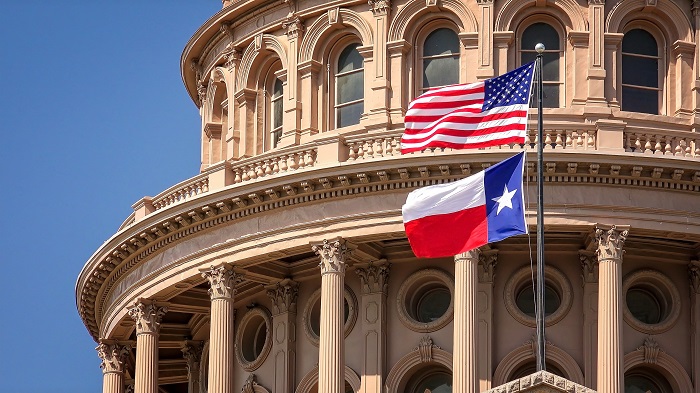The U.S. Court of Appeals for the Second Circuit held that even if a class action case is brought pursuant to a fee-shifting statute, common-fund principles control fee awards authorized from a common fund, and a common-fund fee award may be calculated as the lodestar or as a percentage of the common fund. Accordingly, the Second Circuit affirmed the trial court’s ruling finding that lead plaintiff’s counsel was entitled to its requested fee and expense award. A copy of the opinion in Fresno County Employees’ Retirement Association v. Isaacson/Weaver Family Trust is available at: Link to Opinion. This case involved…
Posts published in May 2019
The Texas Legislature has passed House Bill 996 which limits when a debt buyer can initiate legal action or arbitration to collect consumer debt and requires specific notices with respect to out-of-statute debt. Upon approval by Texas Gov. Greg Abbott, the new provisions will become effective Sept. 1, 2019. Definition of a Debt Buyer “Debt buyer” is defined as “a person who purchases or otherwise acquires a consumer debt from a creditor or other subsequent owner of the consumer debt, regardless of whether the person collects the consumer debt, hires a third party to collect the consumer debt, or hires…
The U.S. Court of Appeals for the Seventh Circuit recently held that the trial court did not abuse its discretion when it reduced the plaintiff’s counsel’s $187,410 fee claim to $10,875 after the debtor recovered only a $1,000 statutory damages award on his federal Fair Debt Collection Practices Act claim at trial and the debt collector had issued a Rule 68 offer of judgment early in the case that exceeded the amount the debtor recovered. A copy of the opinion in Paz v. Portfolio Recovery Associates, LLC is available at: Link to Opinion. After a debt collector purchased a debtor’s…
The Supreme Court of Texas held that the contractual waiver of the statute of limitations on deficiency claims contained in a guaranty agreement was sufficiently “specific and for a reasonable time” as to be enforceable and not void as against public policy. Accordingly, the Texas Supreme Court affirmed the ruling of the appellate court, although it disagreed with portions of the appellate court’s reasoning. A copy of the opinion in Godoy v. Wells Fargo Bank, NA is available at: Link to Opinion. The lender extended a loan to the borrower, which loan was secured by property owned by the borrower. A guarantor…
The U.S. Court of Appeals for the Ninth Circuit recently affirmed a trial court’s order requiring a law firm to respond to interrogatories and requests for production of documents pursuant to a civil investigative demand promulgated by the Consumer Financial Protection Bureau. In so ruling, the Ninth Circuit cited prior Supreme Court separation-of-power opinions which indicate that the bureau’s restriction permitting removal of its director only by the president “for cause” did not violate the Constitution’s separation of powers doctrine to conclude that its structure was constitutionally permissible. The Ninth Circuit also held that the civil investigative demand was proper…
In an agricultural lien contest between three creditors of a bankrupt commercial farm, the U.S. Court of Appeals for the Fifth Circuit recently affirmed the trial court’s award of summary judgment in favor of a bank that provided debtor-in-possession financing, holding that the locale of the farm products determined the applicable lien law and that bank’s lien was superior to the liens of two nurseries that supplied trees and shrubs because the latter were either unperfected or unenforceable. A copy of the opinion in Fishback Nursery, Inc. v. PNC Bank is available at: Link to Opinion. The debtor, “a wholesale…
The U.S. Court of Appeals for the Eleventh Circuit sua sponte issued a new opinion to vacate and replace its prior opinion affirming approval of a class action settlement against a retailer for alleged violation of the Fair and Accurate Credit Transactions Act for printing more digits of his credit card number on a receipt than permitted under the act. Departing from contrary opinions by other federal appellate courts, the Eleventh Circuit’s new opinion offers an updated analysis of the plaintiff-appellee consumer’s standing to bring the action under Spokeo, holding that the risk of identity theft the consumer suffered was sufficiently…
The Bankruptcy Appellate Panel for the U.S. Court of Appeals for the Sixth Circuit recently affirmed a lower bankruptcy court’s ruling that a refinanced mortgage was enforceable as to the interests of both husband and wife, where the wife did not execute the note and was not defined as a “borrower” in the body of the mortgage, but nonetheless initialed and signed the mortgage document as a “borrower” in the signature block. In so ruling, the Sixth Circuit BAP considered the Ohio Supreme Court’s answers to two certified questions stating that failing to identify a signatory by name in the…
The Court of Appeal for the Fifth District of California recently held that a court may award attorneys’ fees pursuant to Civil Code § 2924.12(h) when a borrower obtains a temporary restraining order to stop a non-judicial foreclosure sale. A copy of the opinion in Hardie v. Nationstar Mortgage LLC is available at: Link to Opinion. The borrowers filed an ex parte application for a temporary restraining order (“TRO”) to enjoin the trustee’s sale of their home. The application contained a request for attorneys’ fees and costs. The trial court granted the TRO and set a hearing to show cause for a…
The Appellate Court of Illinois Fifth District affirmed the dismissal of a borrower’s alleged putative class action alleging that the successor to a credit card issuer violated various state and federal laws when it filed suit to collect the debt past the four-year statute of limitations for the sale of goods under the Illinois version of the UCC (810 ILCS 5/2-725). In so ruling, the Appellate Court held that the issuer properly filed suit within the five-year statute of limitations that applies to credit card agreements under 735 ILCS 5/13-205. In addition, the Appellate Court ruled that advancing money to pay…
The U.S Court of Appeals for the Eighth Circuit recently affirmed dismissal of a consumer’s suit against a debt collector, alleging that its collection letter violated the federal Fair Debt Collection Practices Act. In so ruling, the Court concluded that the debt collector’s use of the term “PROFESSIONAL DEBT COLLECTORS” and the initials of its “doing business as” name would not mislead or deceive an “unsophisticated consumer,” and the letter’s inclusion of a signature of an individual not registered to collect debts in Minnesota was irrelevant and did not violate section 1692f, because the collection company and two other signatories…
The Consumer Financial Protection Bureau today released its Notice of Proposed Rulemaking to implement the Fair Debt Collection Practices Act. Years in the making, the proposed rules if adopted would bring significant changes to the form and manner of debt collector communications to consumers, credit reporting and litigation activity. Interested parties will have 90 days from publication in the Federal Register to submit comments to the rules. The rules are available here. The Notice of Proposed Rulemaking covers a wide array of material; we look at a few of the most significant proposals below. Call Frequency Cap The NPRM would…












